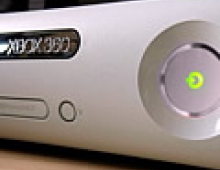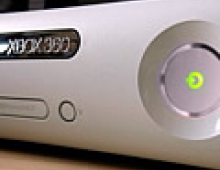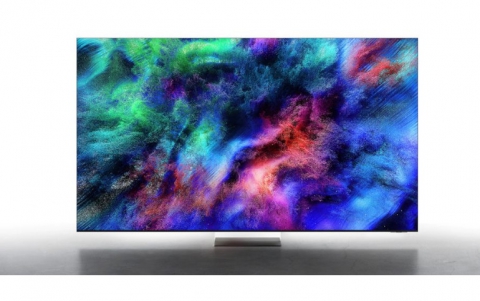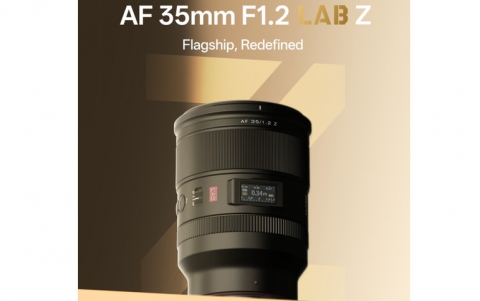
Microsoft Switches Japan Xbox Chief, not Strategy
The new head of Microsoft Corp's Xbox division in Japan acknowledges that sales of the game console have not fully met expectations, but says there will not be a major shift in strategy following a slow start.
"Sales have not necessarily lived up to everyone's expectations since launch," Takashi Sensui, who was tapped on Thursday to replace Yoshihiro Maruyama as general manager of the Xbox division in Japan, told Reuters.
"But considering the (software) titles due to be released and the features and functions of the Xbox 360, we believe we will see very strong growth from here on out."
The change is effective from April 1.
The world's largest software maker launched its Xbox 360 game machine in the final quarter of 2005 with hopes of grabbing the lead in the $25 billion yen video game market from Sony Corp. , which plans to introduce a new console later this year.
The Xbox 360 has been selling well in the United States and Europe, but has received a tepid response from consumers in Japan, moving only 115,000 units in Japan since its launch two months ago, according to a survey by industry watcher Enterbrain.
That is below the 123,000 units of its previous generation Xbox sold in Japan in the first three days after launch in February 2002. It also compares with the 900,000 units sold in the North American market as of the end of December.
Microsoft said Maruyama, 51, a game industry veteran who took over as head of Xbox operations in Japan in 2003, has been appointed to a "strategic position" within Microsoft's entertainment and devices division, but did not elaborate on his new post.
Sensui, 41, said the departure of Maruyama should not be viewed as a demotion, especially since the two have worked closely on the Xbox so far. It is also not a sign that Microsoft will be making big changes in its strategy for Japan.
"Naturally I will take another look at our strategy here, considering many opinions from within and outside the company," Sensui said. "But that doesn't mean there will be a large shift in strategy ... There will not be a big change in direction."
One of Sensui's most pressing tasks will be to encourage Japanese software makers to develop more games. A lack of compelling titles is one of the main factors holding back sales of the Xbox 360, as it was with the first Xbox, analysts said.
Microsoft had hoped to make a big splash in Japan this time by launching the Xbox 360 well ahead of Sony's PlayStation 3 this spring and a new console from Nintendo Co. Ltd. , which should hit stores in the latter half of this year.
But Japanese gamers seem more interested in handheld devices these days.
Microsoft aims to ship between 4.5 and 5.5 million of the Xbox 360 by the end of June, but has not given a specific target for Japan.
"But considering the (software) titles due to be released and the features and functions of the Xbox 360, we believe we will see very strong growth from here on out."
The change is effective from April 1.
The world's largest software maker launched its Xbox 360 game machine in the final quarter of 2005 with hopes of grabbing the lead in the $25 billion yen video game market from Sony Corp. , which plans to introduce a new console later this year.
The Xbox 360 has been selling well in the United States and Europe, but has received a tepid response from consumers in Japan, moving only 115,000 units in Japan since its launch two months ago, according to a survey by industry watcher Enterbrain.
That is below the 123,000 units of its previous generation Xbox sold in Japan in the first three days after launch in February 2002. It also compares with the 900,000 units sold in the North American market as of the end of December.
Microsoft said Maruyama, 51, a game industry veteran who took over as head of Xbox operations in Japan in 2003, has been appointed to a "strategic position" within Microsoft's entertainment and devices division, but did not elaborate on his new post.
Sensui, 41, said the departure of Maruyama should not be viewed as a demotion, especially since the two have worked closely on the Xbox so far. It is also not a sign that Microsoft will be making big changes in its strategy for Japan.
"Naturally I will take another look at our strategy here, considering many opinions from within and outside the company," Sensui said. "But that doesn't mean there will be a large shift in strategy ... There will not be a big change in direction."
One of Sensui's most pressing tasks will be to encourage Japanese software makers to develop more games. A lack of compelling titles is one of the main factors holding back sales of the Xbox 360, as it was with the first Xbox, analysts said.
Microsoft had hoped to make a big splash in Japan this time by launching the Xbox 360 well ahead of Sony's PlayStation 3 this spring and a new console from Nintendo Co. Ltd. , which should hit stores in the latter half of this year.
But Japanese gamers seem more interested in handheld devices these days.
Microsoft aims to ship between 4.5 and 5.5 million of the Xbox 360 by the end of June, but has not given a specific target for Japan.


















